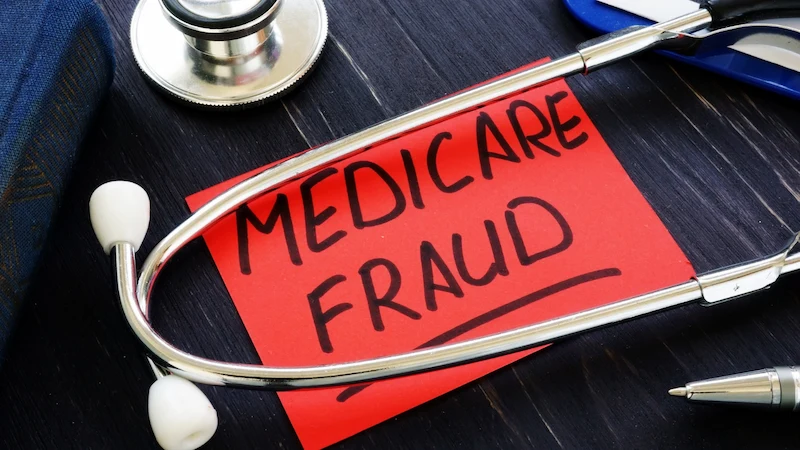Table of Contents
Medicare fraud is a severe problem that impacts many people each year. It’s not just about losing money; it’s about the misuse of a system meant to help those in need. In this blog, you will learn how to spot signs of Medicare fraud, whether you’re a Medicare recipient or a caregiver.
What is Medicare Fraud?
Medicare fraud happens when someone falsely claims benefits or payments from the Medicare program. This can range from overbilling for services to billing for services that were never provided. It’s a significant issue that affects individuals and the healthcare system as a whole.
The Impact of Medicare Fraud
Medicare fraud can have devastating effects. Financially, it drains billions of dollars from the healthcare system every year. For beneficiaries, it can mean reduced access to necessary services and care. On a broader scale, it undermines trust in the healthcare system. This can result in higher costs for everyone.
If you encounter challenges or need further guidance during the fraud resolution process, consider seeking a healthcare fraud attorney. They specialize in healthcare fraud and can provide valuable advice to help protect your rights and interests.
Red Flags to Watch Out For
When it comes to your Medicare coverage, staying vigilant is crucial. Knowing the warning signs of potential fraud can empower you to protect your healthcare benefits effectively. Here are some key red flags to keep in mind:
Unusual Billing Patterns
Pay attention to any irregularities in your Medicare statements. This could include multiple charges for the same service or unexpected high-cost procedures. Such discrepancies may indicate billing errors or, in some cases, fraudulent activities.
Excessive Charges
If you notice charges on your Medicare statement that seem unusually high for the services received, it’s important to investigate further. Compare the billed amounts to standard costs for similar medical services to identify potential overbilling or fraudulent practices.
Duplicate Claims
Duplicate claims occur when Medicare is billed multiple times for the same service or treatment. Review your statements carefully and report any instances where you see identical charges, as this could signify errors or fraudulent billing practices.
Suspicious Providers
Be cautious of healthcare providers exhibiting unusual behavior, such as offering free services in exchange for Medicare information or pressuring you into unnecessary treatments. Trust your instincts and report any concerns about provider integrity or billing practices promptly.
Understanding these red flags can help you detect and report potential fraud early. You can protect yourself and contribute to maintaining the integrity of Medicare for all beneficiaries.
Steps to Take if You Suspect Fraud
If you suspect fraud related to your Medicare benefits, taking prompt action is essential. Acting in a timely manner can protect yourself and prevent further issues. Here are detailed steps you can follow:
Document Everything
Start by documenting any suspicious activity or discrepancies related to your Medicare statements. Note down dates, times, descriptions of services, and any other relevant details that can support your case. Keeping thorough records will be crucial when reporting and resolving fraud issues.
Contact Medicare
As soon as you suspect fraud, contact Medicare directly to report your concerns. You can reach out through their:
– Official website
– Customer service hotline
– Online reporting tools
Provide as much specific information as possible, including:
– Your Medicare number
-The provider’s details
– A clear description of the suspected fraudulent activity
Follow Up
After reporting fraud, stay engaged in the process by following up with Medicare on your report. They may request additional information or updates from you as they investigate the matter. Stay proactive and responsive to ensure your case progresses toward resolution.
Monitor Your Statements
Continue to monitor your Medicare statements closely for any further signs of fraudulent activity. Regularly reviewing your billing statements allows you to quickly identify and report any new instances of potential fraud.
Resources for Further Information
Reliable resources can provide valuable support and guidance. Here are several avenues you can explore for additional information and assistance:
Medicare Resources
Visit the official Medicare website or contact their customer service for comprehensive information on the following:
– Fraud prevention
– Reporting procedures
– Resources available to beneficiaries
Medicare offers educational materials and direct assistance to help you navigate fraud-related issues effectively.
Legal Assistance
If you need legal advice regarding Medicare fraud, consider consulting with attorneys specializing in healthcare fraud cases. They can offer expertise in:
– Navigating complex legal processes
– Protecting your rights
– Pursuing resolution for fraud-related disputes
Government Agencies
Explore resources from government agencies such as:
– The Department of Health and Human Services (HHS)
– Office of Inspector General (OIG)
– Centers for Medicare & Medicaid Services (CMS)
These agencies publish reports, guidelines, and updates on Medicare fraud trends aimed at combating fraudulent activities.
Conclusion
Recognizing the signs of Medicare fraud is crucial for protecting yourself and the integrity of Medicare. By staying informed and reporting suspicious activity promptly, you can help combat fraud. This will ensure that Medicare funds are used appropriately for those who truly need them. Stay vigilant and proactive in safeguarding your healthcare benefits.
Want to explore something different? How Licensed Gutter Cleaners Can Save You Time, Money, and Hassle

